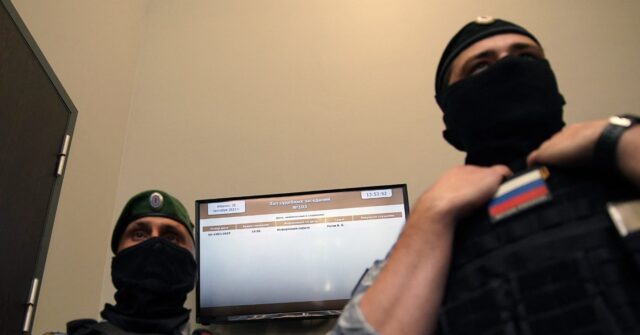In a recent development from Moscow, Russian prosecutors have requested a seven-year prison sentence for Stephen Hubbard, a U.S. citizen accused of working as a mercenary in Ukraine against Russian forces. According to reports from Russian news agencies, prosecutors emphasized Hubbard’s advanced age of 72 and noted that he has admitted guilt regarding the charges against him. They are advocating for his imprisonment in a maximum-security penal colony, as participating in mercenary activities is a criminal offense in Russia, carrying a potential prison term of 7 to 15 years.
The charges against Hubbard stem from allegations that he signed a contract with the Ukrainian military shortly after Russia’s military intervention in Ukraine began in February 2022. Reports indicate that he was promised a payment of at least $1,000 for his services. Following his training and the provision of a personal firearm, Hubbard purportedly fought alongside Ukrainian forces until he was detained by the Russian military in April 2022. The situation has drawn limited comment from the U.S. Embassy in Moscow, which acknowledged awareness of Hubbard’s arrest but cited privacy restrictions that prevent further details from being disclosed.
Amidst this trial, the broader context highlights an environment where Russian courts exhibit an extremely high conviction rate, with over 99% of defendants found guilty. This raises concerns about the fairness of the judicial process, as the system is often perceived as favoring the prosecution. The prosecutorial powers in Russia are extensive, allowing them to appeal sentences they consider lenient. This reinforcing of punitive measures illustrates the challenges foreign nationals, particularly Americans, face in the Russian legal system.
The increasing frequency of arrests of American citizens within Russia has sparked concern that these actions may be strategic, aimed at leveraging U.S. nationals in future negotiations. There is a growing belief that Russia might utilize such detainees as bargaining chips in discussions focused on the return of Russians imprisoned in the United States and Europe for various offenses. This behavior reflects a shifting dynamic in U.S.-Russia relations, particularly amid the ongoing geopolitical tensions exacerbated by the conflict in Ukraine.
In August 2023, the U.S. and Russia completed their largest prisoner exchange since the end of the Soviet era, involving 24 individuals and months of complex negotiations. This swap required concessions from other European nations that had their own Russian detainees and demonstrates the high stakes at play in international diplomacy related to human rights and criminal justice. Still, despite the successes of such swaps, several American citizens remain incarcerated in Russia, causing continued concern for their families and the U.S. government.
As the situation unfolds, the future of Stephen Hubbard remains uncertain, and his case serves as a poignant example of the precarious status of foreign nationals in Russia today. It underscores the potential risks involved when engaged in activities connected to the ongoing conflict in Ukraine and sends ripples of caution through the international community regarding the implications of foreign involvement in this contentious conflict. Overall, the global repercussions of Hubbard’s trial and the treatment of American citizens in Russia highlight the intersection of legal, diplomatic, and personal stakes in a rapidly evolving geopolitical landscape.

